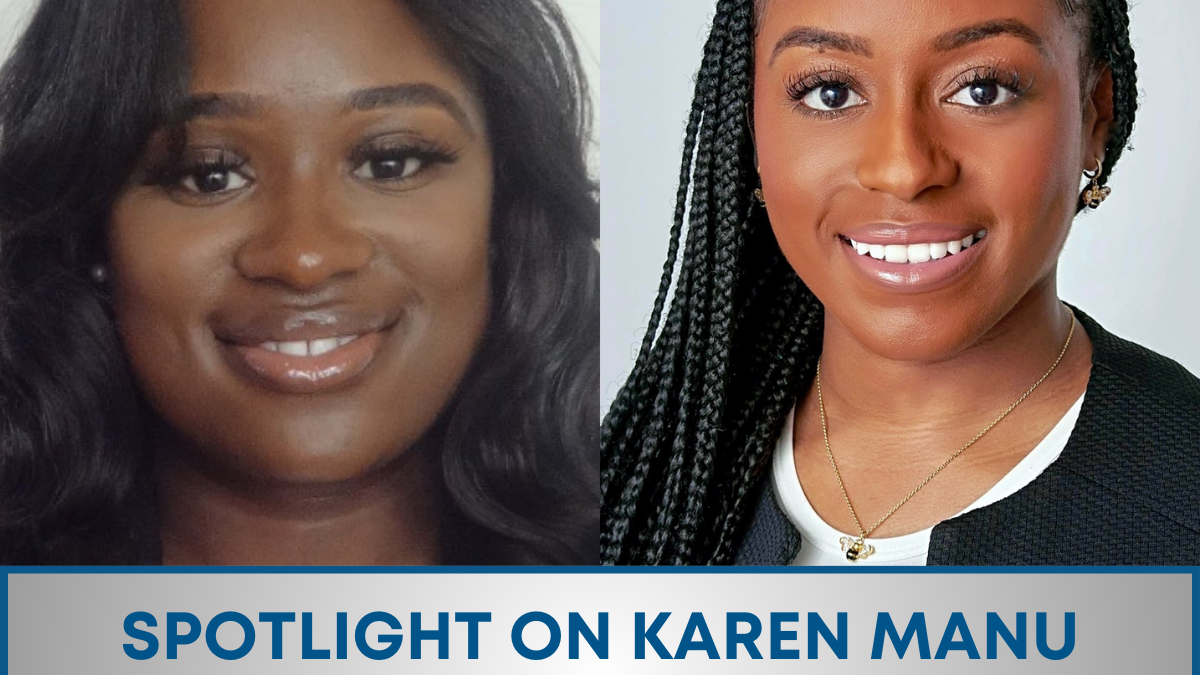
How Do Law Firms Make Money?
April 1, 2024
The Strength of Support Systems
April 4, 2024By Christianah Omobosola Babajide.
Reading time: four minutes
Welcome to the Recruiter Corner! In this segment, we delve into the minds of legal professionals who play a pivotal role in shaping the future of aspiring lawyers.
COB: Today, we have the pleasure of introducing Karen Manu, an LLM LPC Graduate and Graduate Recruitment Assistant at Reed Smith. With her diverse background and passion for supporting aspiring solicitors, Karen brings a wealth of knowledge and unique insights to the recruitment process. As an experienced copy writer and writer for The Student Lawyer, Karen is committed to empowering law students on their journey to success. In this interview, Karen provides valuable insights into Reed Smith’s recruitment process and tips for aspiring lawyers.
COB: How important is the vacation scheme as part of the recruitment process?
KM: The Vacation Scheme is an extremely important part of the recruitment process especially if the firm doesn’t offer a direct Training Contract option.
It is an opportunity for candidates to really put their best foot forward and showcase why they would be an asset to the firm. Furthermore, it allows students to experience life at the firm to see if the culture and work is right for them.
COB: What kind of work can candidates expect to experience during the vacation scheme?
KM: During the Vacation Scheme students can expect to partake in a Pro bono exercise, a variety of workshops covering things such as negotiation expertise, cultural intelligence, and business development.
Moreover, students are given an opportunity to sit within a practice area of their choice. They will also be given an experienced supervisor who will assign them projects and a trainee buddy who will act as an informal guide. They will be available to catch up with throughout the whole Vacation Scheme and thereafter.
COB: What key skills does Reed Smith look for in candidates when they apply?
KM: One skill we really look for is Commercial awareness. Understanding what is going on in the wider context of society or within the business world, and the capability to explain how that would affect or impact the way we service our clients.
Another key skill we admire is being personable and adaptable. Having the ability to think on one’s feet and engage/communicate in conversations in a likable yet professional manner that paints the firm in the best light.
Lastly, a key skill we look for in a candidate is someone who able to perform well under pressure or in situations where there is a tight deadline presented.
COB: How is Reed Smith adopting the Solicitors Qualifying Exam (SQE)?
KM: Reed Smith has curated a very specific SQE placement programme for our future trainees.
During the Professional SQE year, future trainees will study SQE1 and 2 preparation, as well as Masters-level modules tailored to Reed Smith and the skills and knowledge required as a Trainee. Alongside study they will undertake paid Professional Placements, for two days a week. During your time working with us, they will rotate through two roles in different business services teams at the firm, one of which may be client-facing. They will also you will have the advantage of being fully inducted at Reed Smith, building an understanding of our systems, business processes and a network of contacts throughout the firm before starting your Qualifying Work Experience (QWE).
COB: How important is diversity and inclusion to Reed Smith?
KM: Diversity and inclusion are extremely important to the firm. From a graduate recruitment perspective, we are constantly having conversations surrounding how to increase the presence of underrepresented groups within our firm and how to present ourselves in a way that is attractive to these groups. We also work with many university societies that have a DEI focus and have partnerships with organisations that promote DEI within the legal space.
Outside of that Reed Smith have Business inclusion groups that promote and support diversity and inclusion initiatives.
We have:
- Multicultural Network (MCN) promotes cultural diversity within the firm, with a focus on attracting, recruiting, and promoting BAME individuals.
- LEADRS (Looking for Excellence and Advancement of Persons with Disabilities at Reed Smith): supports and enhances the professional and personal development of those with all types of disabilities, both mental and physical. It helps us show that jobs for people with disabilities are both available and achievable at the top of the legal profession.
- PRISM (Pride, Respect and Inclusion Simply Matter): champions inclusion for LGBT+ individuals, and acts as a forum for socialising, mentoring, and networking in our firm and the wider LGBT+ community.
- WINRS (Women’s network): is a growing global community dedicated to enhancing our workplace to more effectively develop, reward, engage, and attract women into the legal profession.
COB: What is the most common way that candidates let themselves down in their applications?
KM: One of the most common ways that candidates let themselves down in their applications is the structure of their answers. An answer can have great and credible content but if the structure is not great it makes it difficult to fully understand and grasp the quality of the answer. A weak or incoherent structure weakens the quality of an answer.
Another common way candidates let themselves down in their applications is through lack of specific, relevant examples. Candidates do not expand on their points with tangible examples which then in return leads to a weaker answer.
COB: What key things about Reed Smith should good candidates be able to talk about?
KM: A good candidate can give specific and personal reasons as to why they would like to be a commercial lawyer at Reed Smith. They are able to discuss one of our industry groups they are particularly interested in through thorough research of our website, our podcast etc to show that they are aware of how that industry as a whole is performing.
COB: Does Reed Smith run assessment centres?
KM: We run both in-person and virtual assessment centres to accommodate for our international applicants. Our assessment centre is a case-study based assessment centre that consists of three stages.
Our stages include:
- Case study exercise and interview;
- Group exercise; and
- In-tray mark-up exercise.
We are also able to provide reasonable adjustments if requested by a candidate.
Quick fire questions…
COB: Fav movie?
KM: Madea’s Big Happy family (the play).
COB: What’s your guilty pleasure?
KM: Any song from the High School Musical franchise.
COB: Coffee or tea?
KM: Coffee! Coffee! Coffee!





